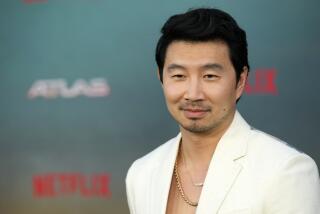Wealthy Salesman Toasts China’s ‘Healthy’ Drink
- Share via
HANGZHOU, China — Super-salesman Zong Qinghou touts a syrupy health drink called Wahaha--and he’s laughing all the way to the bank.
It tastes like prune juice, looks like cough medicine and comes in a thin glass vial. Incredibly, Zong sells this murky brew as a children’s tonic: It’s supposed to stimulate the appetites of toddlers.
Millions of doting Chinese parents encourage their offspring to suck a Wahaha through a straw each day “to open up their stomachs,” as Zong puts it.
Income of Zong’s Hangzhou Wahaha Group Corp. in 1994 was 120 million yuan ($14.2 million) on sales of one billion ($118 million), making it a Chinese top-500 company.
“We used the accumulated wisdom of our ancestors and applied it to modern science,” said Zong, explaining how a potion based on Chinese herbal remedies came into mass production seven years ago.
Clever advertising played a role. And Zong’s political connections too. A wacky name, cute logo and charitable good works have also helped turn Wahaha into one of only a handful of recognized domestic brands.
Zong boasts that President Jiang Zemin’s grandchild is a two-vial-a-day customer.
But none of this would have been possible without Beijing’s one-child family policy.
Zong spotted a market niche for his product in an agonizing thrice-daily ritual of modern Chinese families--coaxing “little emperors,” as single children are known, to accept food from dangled chopsticks at mealtimes. Spoiled by parents and grandparents, Chinese toddlers were becoming picky eaters.
“Parents wanted their kids to grow up healthy, but they weren’t,” said Zong. “It was a problem of wealth.”
Zong’s tonic is pricey, but that’s the point: Nothing is too good, or too expensive, for a “little emperor.” And Wahaha’s sales pitch plays on parental guilt.
Zong, a chain-smoking father of a 13-year-old daughter, borrowed the nonsense name Wahaha from an old Chinese nursery rhyme, then conjured up advertising jingles to make it a household word.
Ten percent of sales revenue goes to television advertising, with the slots around the morning soap operas and evening news shows aimed at parents and the cartoon-time slots aimed at kids.
More to Read
Inside the business of entertainment
The Wide Shot brings you news, analysis and insights on everything from streaming wars to production — and what it all means for the future.
You may occasionally receive promotional content from the Los Angeles Times.










